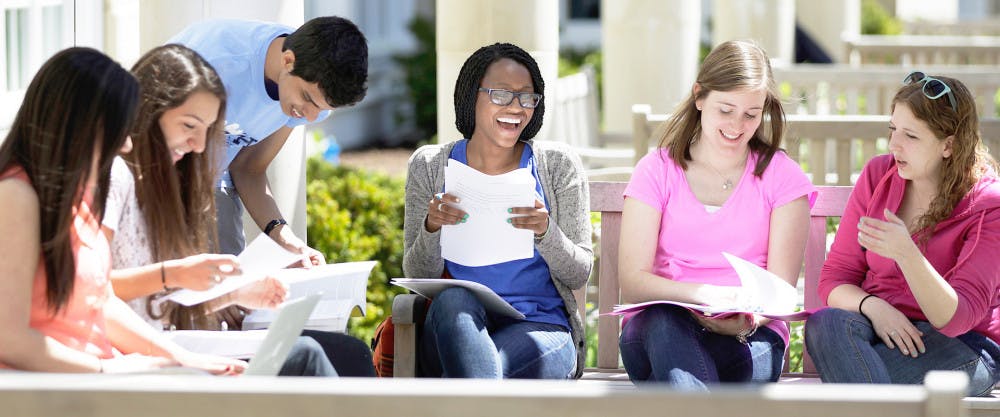By Maximillian C. Burgos
Sports Assistant
“Coming (to the College) was like a culture shock. Coming from a very diverse high school, it was a little intimidating.”
Sarah Sleiman, a sophomore management major, came from a North Brunswick high school where so-called “minorities” were the majority. In high school, she felt at home. When she came to the College, she initially felt misplaced and found it difficult to make friends.
As of 2015, the College has an ethnic population of only about 30 percent, with the rest being white, according to collegeportrait.org.

Over the last few years, the minority population at the College has grown. College President R. Barbara Gitenstein is dedicated to inclusion and creating a diverse environment.
“Over the last decade or so, there has been an increase in the number of students and faculty from underrepresented groups at TCNJ,” Gitenstein said. “Surely more representation is necessary, but also it is important to participate in difficult discussions across difference, not within silos of sameness. Such discussions can become the foundation for a community welcoming to all students, faculty and staff.”
While some students feel they blend in well — regardless of their race — other students like Sleimen initially had a harder time becoming accustomed to the College’s lack of diversity.
Some ethnic students feel divided from their peers due to race, appearance and cultural preconceptions. Sometimes there are breakdowns in communication in which students feel a palpable detachment due to their peer’s lack of understanding.
“Coming here was not too different from what I already knew,” said Theresa Fineza, a sophomore nursing student. “Over time, there has been a slight divide between me and some of my peers that stems from a couple of things. Primarily it stems from not understanding each other fully, but that goes both ways.”
While Fineza has never felt discriminated against, at times, she has felt a lack of understanding between her and her peers due to their cultural differences.
Through its plethora of different clubs, organizations and programs — such as the Korean Student Association and the Peer Mentoring Program — the College tries to help students of all creeds feel safe and comfortable to express themselves, and help ethnic individuals find their place.
For students like Jen Piserchia, a sophomore biomedical engineer major, the College helped to transform the campus into a home.
“I never felt out of place,” she said. “I feel very included here at TCNJ. TCNJ has helped me find my identity.”
Despite the College’s efforts, some students still had a hard time adjusting to the College’s culture.
For Sleiman, the College felt more like home once she connected with a group of understanding peers. Feeling a part of the College's culture, she was able to get over her initial culture shock.
“It was very difficult for me at first,” Sleiman said. “But everyone was so nice and friendly, so I got used to it.”
While the College tries to create a welcoming environment for its students, white students are still the majority, Sleiman said. As a community, she feels students and faculty at the College can create a sense of unity by getting involved in organizations, creating a diverse group of friends and keeping an open mind.







